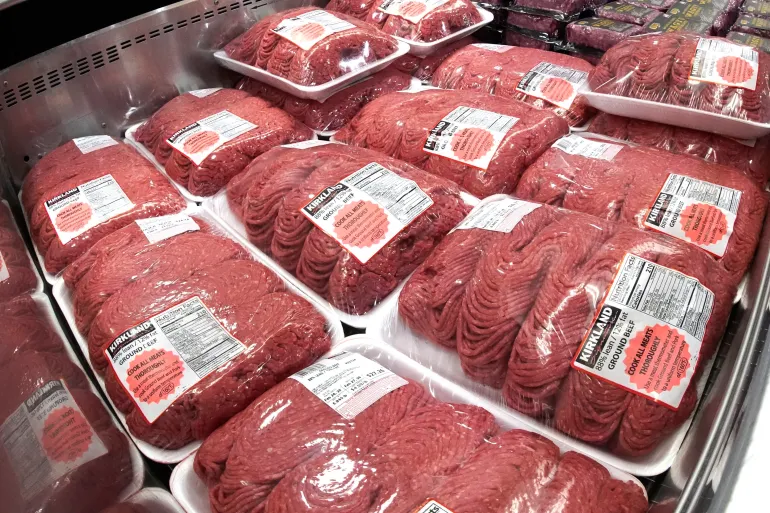Trump’s new Brazil tariffs could raise US beef prices

United States President Donald Trump’s newly announced tariffs of 50 percent on Brazilian imports could drive up beef prices for US consumers.
Unless the White House delays or reverses course, the tariffs are set to take effect on August 1.
After China, the US is the second-largest importer of Brazilian beef. Brazil is currently the fifth-largest source of foreign beef for the US, and its share has grown in the past year, accounting for 21 percent of all US beef imports.
That surge has been driven by domestic supply challenges, including widespread droughts and rising grain costs. In fact, imports doubled in the first half of this year compared to the same period in 2024 including because of the threat of upcoming tariffs.
Analysts say should the tariff go into place, it will hit importers of ground beef, commonly used in hamburgers, particularly hard.
“They [US beef importers] will either have to pay the higher cost of Brazilian beef or obtain it from other higher-cost sources. That could lead to higher prices for certain beef products, particularly ground beef and hamburger meat. This comes at a time when the US cattle herd is at the lowest level in many decades, demand for beef is strong, and as a result beef prices are up,” David Ortega, a food economist and professor at Michigan State University, told Al Jazeera.
The 50 percent tariff would bring the rate on Brazilian beef to about 76 percent for the rest of the year, Reuters news agency reported, citing livestock analysts.
Some domestic trade groups, including the National Cattlemen’s Beef Association (NCBA), have praised the White House for the looming tariffs.
“NCBA strongly supports President Trump holding Brazil accountable with a 50 percent tariff,” NCBA Executive Director of Government Affairs Kent Bacus said in a statement provided to Al Jazeera. “For many years, NCBA has called for full suspension of imported Brazilian beef due to their abysmal lack of accountability on cattle health and food safety. Brazil’s failure to report cases of atypical BSE [a neurological disease affecting cattle] and their history of [foot and mouth disease] is a major concern for America’s cattle producer.
“A 50 percent tariff is a good start, but we need to suspend beef imports from Brazil so we can conduct a thorough audit and verify Brazil’s claims [of safety and health practices].”
In the 2024 election cycle, almost 95 percent of the political action committee representing the NCBA’s donations went to Republican candidates, according to OpenSecrets.





